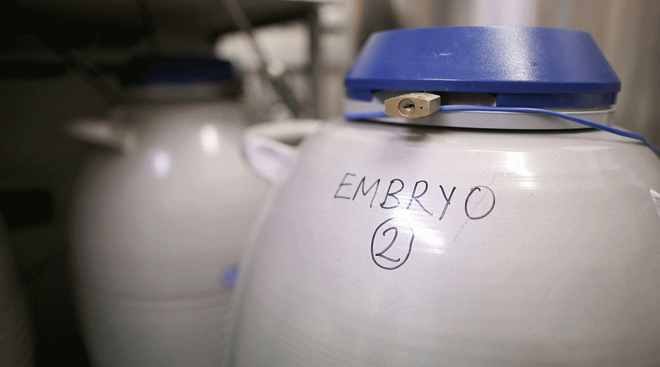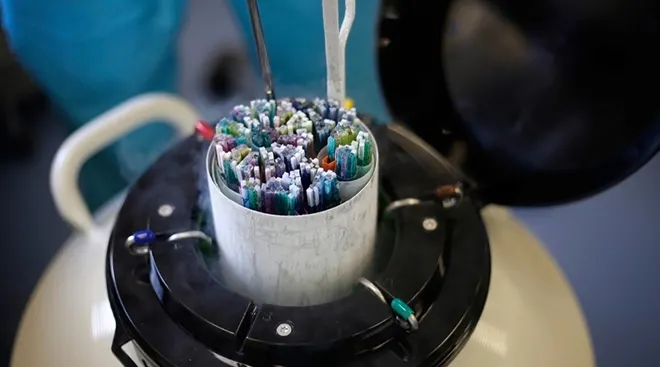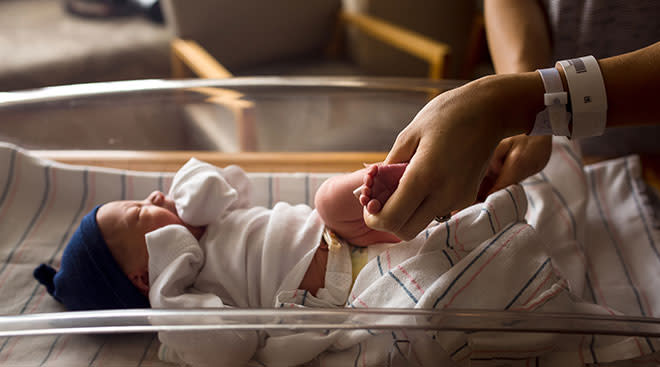8 Ways to Boost Your IVF Odds
When it comes to baby making, one out of three aren’t great odds. Unfortunately, most women have a 20 to 35 percent chance of each IVF cycle sticking. And the fact that the average IVF cycle costs $12,400 makes things seem even bleaker. But thanks to technology and research, there are some ways to fight those odds.
1. Time-lapse embryo screenings
Typically, endocrinologists have to take embryos out of their incubators to screen them, which puts them at risk from exposure. (That’s why most labs only inspect embryos once a day.) But thanks to two new high-tech screening systems Eeva and Embryoscope, doctors are now able to get a safer and more complete picture. “Video is a part of everyday modern life, and fertility treatments these days are no different,” says reproductive endocrinologist Thomas A. Molinaro, MD. These more advanced, noninvasive images are helping increase the odds of picking viable embryos, which in turn will likely lead to more babies.
2. Day-of transfer acupuncture
You’re probably a pro at getting needle injections by now so what’s a few more pricks if it may increase your embryo’s odds of sticking? “It’s thought that acupuncture may improve blood flow to the uterus and ovaries and stimulate the release of neurotransmitters, which travel in the blood and may also improve outcomes,” Molinaro says. For the best results, you want to time your treatments. In one study, women who received acupuncture on the day of the embryo transfer were more likely to get pregnant than those who didn’t. “Overall, there is little downside to acupuncture as far as we can tell. Patients who are interested in it should feel comfortable adding it to their IVF care,” he says.
3. Vitamin D supplementation
If you’ve gone through several rounds of IVF with no luck, it may be time to check your vitamin D levels. According to recent research, women low in vitamin D are nearly half as likely to conceive through IVF as women with more normal levels. While the majority of your body’s vitamin D comes from sun exposure, a balanced Mediterranean diet rich in fatty fish like salmon and tuna can also help improve your levels, says William B. Schoolcraft, MD. Just keep in mind that it may take up to 60 days for any nutritional changes you make to have an impact on your success rate.
4. Intracytoplasmic sperm injection
Does your partner’s sperm need an extra helping hand? Then this treatment’s for you. During traditional IVF, fertilization takes place in a petri dish, so it’s still up to that sperm to somehow find its way into the egg, just like it would during sex. “That’s why poor sperm quality can lower a couple’s chances of conceiving through IVF,” Molinaro says. With ICSI, doctors can inject a single sperm directly into the egg, making the process much more precise and increasing the chances of fertilization.
5. DHEA supplements
About one-third of IVF centers worldwide are treating patients with DHEA (Dehydroepiandrosterone) supplements, and one study even found that women who took them during their IVF treatments were three times more likely to conceive. That’s pretty promising, right? Though doctors aren’t sure exactly why it works yet, giving your body an extra boost of this hormone not only seems to improve egg quality and development, it can lead to a healthy pregnancy and delivery too. If your reproductive endocrinologist recommends it as an option, you’ll likely start taking the suggested dosage—usually between 25 to 200 milligrams a day—about six to eight weeks or more before your next round of IVF.
6. Healthy BMI
Get yourself to the gym and it can get you one step closer to being pregnant. How’s that for motivation? According to a study from the Fertility Center of Illinois, an unhealthy BMI can reduce your IVF success rate, and getting that number back into a healthy range can have a significant positive impact on conception, particularly in women younger than 36. “While being 10 pounds under or overweight is unlikely to affect IVF success rates, extremes on both ends can make a large difference,” Schoolcraft says. The goal is aim for a healthy BMI, which falls between 18.5 and 24.9.
7. Comprehensive chromosomal screening
Along with those time-lapse imaging systems we mentioned, this is another high-tech technique endocrinologists are using to improve the embryo screening process. “Sometimes beautiful-looking embryos are chromosomally imbalanced and will likely lead to a failed cycle or miscarriage,” Molinaro says. So rather than relying on visual cues and just eyeballing embryos to find the best ones of the bunch, this new procedure actually biopsies a few of an embryo’s cells to determine its true chromosomal quality and cut down the guesswork.
8. High success clinics
Just because it’s a few blocks away doesn’t mean a particular clinic is your best bet, says Molinaro, who recommends making sure any facility you use offers odds-making treatments like the ones in this article. And definitely do your research on a clinic’s success rates before making a decision. While most clinics operate very similar to one another, the conditions of their labs, in which the embryos grow prior to implantation, can have a huge impact on whether or not IVF works for you, Schoolcraft says. Look up the success rates for clinics by state here, where you can find out how many of the clinic’s cycles result in pregnancy, birth and even twins.
Experts:
Thomas A. Molinaro, MD, a reproductive endocrinologist with the Reproductive Medicine Associates of New Jersey; William B. Schoolcraft, MD, H.C.L.D., founder and medical director of the Colorado Center for Reproductive Medicine
Please note: The Bump and the materials and information it contains are not intended to, and do not constitute, medical or other health advice or diagnosis and should not be used as such. You should always consult with a qualified physician or health professional about your specific circumstances.
Navigate forward to interact with the calendar and select a date. Press the question mark key to get the keyboard shortcuts for changing dates.




















































